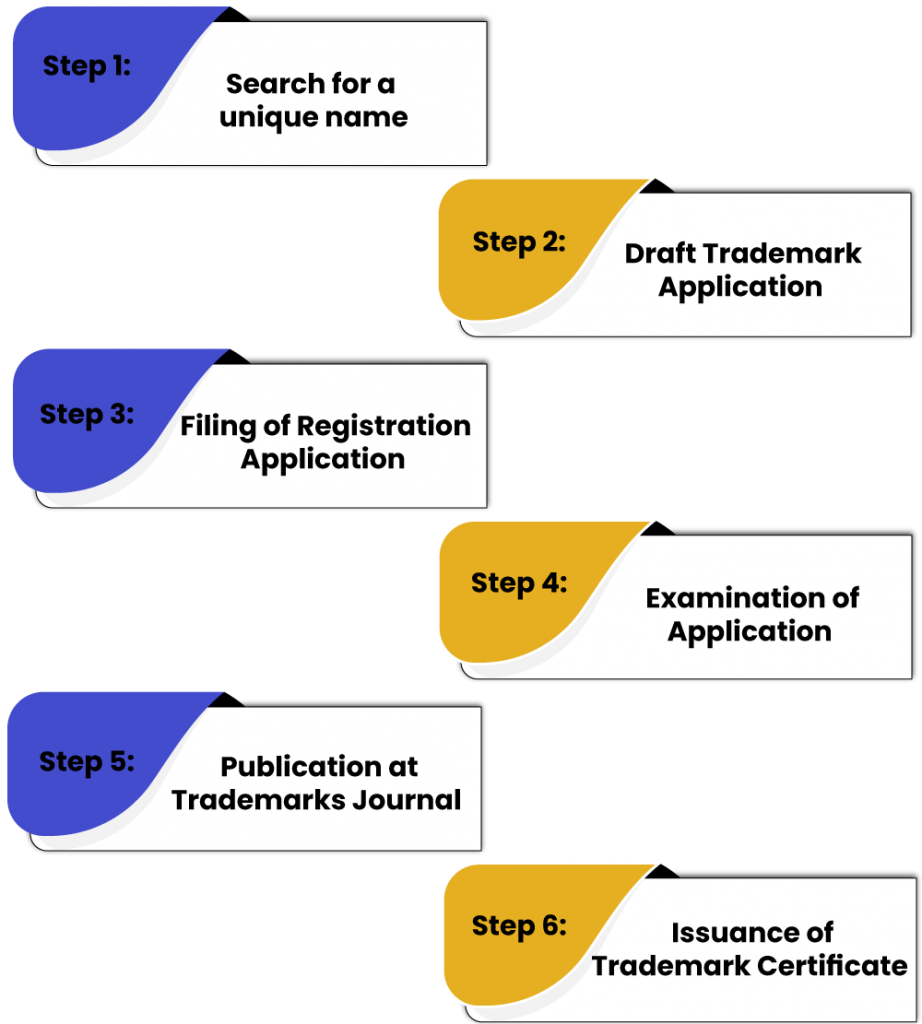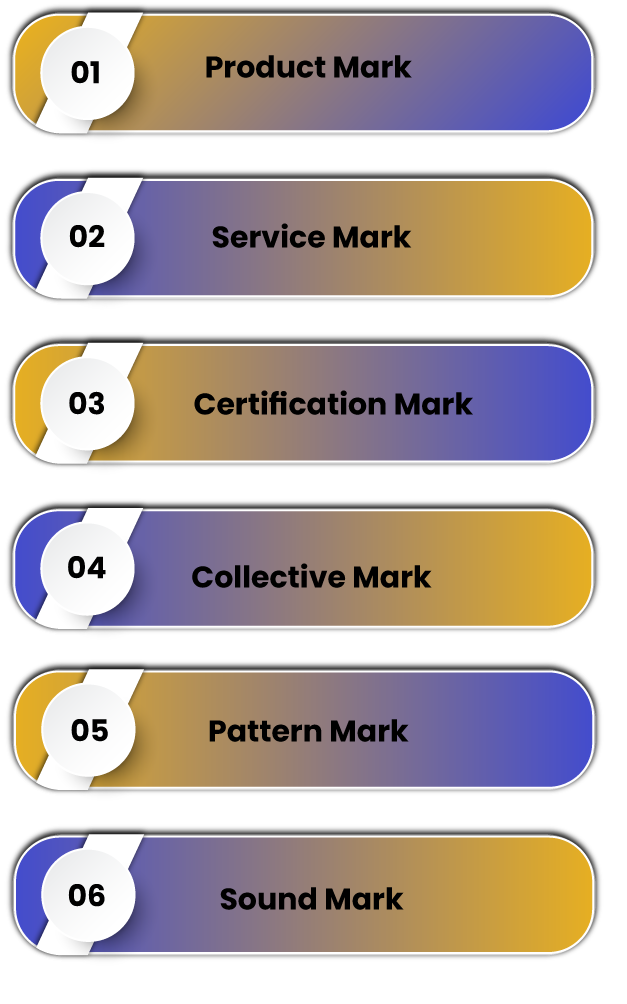Things to know before Registering a Brand name in India

Japsanjam Kaur Wadhera | Updated: Dec 22, 2020 | Category: Trademark
Companies and individuals work hard to build brand and loyalty for their business in the market. So when it comes to protect the brand from the rest of the world, it is important for the entrepreneurs to get their brand registered under the Indian Trademarks Act, 1999[1]. Trademark is kind of intellectual property that helps the company to differentiate its product and create a distinct identity from the rest of the products in the market. Therefore, this article will help you to provide knowledge upon the things that you must know before registering a brand name in India.
Table of Contents
Overview of Trademark Registration
Trademark is mark which helps the company to make its brand prominent in the market. According to Section 2 of the Trademarks Act, 1999 a trademark is a mark that helps to distinguish the goods and services of one company from another. It can be a symbol, logo, design, word, label and etc.
Registering a Brand name in India is necessary for all the entrepreneurs involved in trading of goods and services. Trademark Registration is regulated by the Ministry of Commerce and Industry, Controller General of Patent Design and Indian Government. Registering a Brand name is very easy and simple in India with Swarit Advisors.
Types of Trademarks in India
· Product Mark
A Product mark is a mark, which is used on the goods or products which helps the customers to determine the tangible products easily. Trademark Class 1-34 must be applied by the applicant for the registration of Product Mark.
· Service Mark
A service mark is a mark, which is used to register services. It enables the customers to recognize a particular service from its service mark. Trademark Class 35-45 must be applied by the applicant for the registration of Service Mark.
· Certification Mark
A certification mark certifies the quality, origin, material and other aspects of goods or services. It allows the customers to identify the goods that are of certain standards. It assured that the product has gone with several standard tests and is of a good quality.
· Collective Mark
Any company or institution listed under the Section 8 of the Companies Act, 2013 requires a Collective Mark. This type of mark helps to identify the distinctive features of a company’s products and services on a collective basis.
· Pattern Mark
Marks used by the companies with some designs or patterns to distinguish their products from the others are called Pattern Marks. Under this mark, the owner is required to prove the uniqueness of its pattern to register it under this mark.
· Sound Mark
A sound mark is used by the company when their brand has a unique sound which the audience can easily recognize through that concerned sound. It is important for the owner of this mark to prove that the mark has uniqueness and can be easily recognized by the people.
Procedure to Register a Brand Name in India
The procedure to register a brand name in India is as follows: –

Step 1: Search for a unique name
The first step that involves for the registration of a brand name in India is to look for a name which is unique. It is important for the applicant that he must search for name that has not been used previously by any other company and has not been registered before. The name must be relevant and should be related to the product, that is, it should not mislead the customers about the brand.
Step 2: Draft Trademark Application
Once the applicant finalizes the name for its company, the next step is to draft a Trademark Application. The following documents are required to be submitted along with the application: –
- Signed TM-48 Form
- A copy of the logo
- Aadhar card of the applicant
- Id proof
- Certificate of Incorporation/Partnership Deed
- Address proof of the applicant
Step 3: Filing of Registration Application
There are two methods to apply for a Trademark registration, that is, manual or online. In Manual Registration, the applicant is required to submit its trademark application at the Trademark Registrar office along with the necessary documents. The applicant receives a receipt of acknowledgement with 15 to 20 days. Whereas, in online Trademark registration, the application is submitted online at the official website portal of trademark registry and the acknowledgement receipt is received on it.
Step 4: Examination of Application
The application submitted by the applicant is examined by the examination officer, who is appointed by the registry of trademarks. It the examination officer is satisfied with the application, it shall proceed further.
Step 5: Publication at Trademarks Journal
Upon the approval of the application by the examination officer, the application shall be published in the Trademarks Journal for objections by the people. If no Trademark objection against the application is raised within three months of its publication, then the application shall be accepted and proceeded further for the registration.
Step 6: Issuance of Trademark Certificate
The registrar of the Trademarks office shall accept the application and issue a Certificate of Trademark to the applicant upon the registration of the mark.
Advantages of Trademark Registration

· Exclusive rights
The registered trademark holder enjoys the exclusive right over the trademark. The owner has a sole ownership of the trademark and can stop the others from the unauthorized use of the mark. it gives the right to the owner to sue the unauthorized user of the registered trademark.
· Builds Goodwill and Trust
Once the trademark is registered, it builds trust and goodwill of the brand in the market. It helps in creating permanent customers who will always opt for the same brand and will be loyal.
· Product Differentiation
The registration of a trademark helps the owner to differentiate its product from the rest in the market quite easily. The customers can easily identify the product. The mark creates a unique character for the brand registered and ensures that the product holds a good quality.
· Asset Creation
A registered trademark creates intangible asset for the owner. The owner has the right to sell, assign, commercially contract or franchise the mark. it gives advantages to the company.
· Infringement Protection
The registration of a trademark does not allow any other person except the owner to use such mark. If any person makes any deceptive use of the mark or infringes the registered mark, the owner can take a legal action and sue the infringer. The owner of the trademark is legally protected once his mark is registered.
· Use of ® Symbol
Once the trademark is registered, the owner of the registered mark has a right to use the ® Symbol stating that it is a registered mark and no other person has a right to use it without the consent of the owner. If any person uses such registered mark, then the trademark holder has a right to take a legal action and sue the infringer.
· Attracts Human Resources
A registered trademark acts as a magnate for the people to join such big brands. It creates a positive image of the company and thus the candidates are attracted towards them easily. Further, this helps to reduce the cost in hiring and other related activities.
What is the validity of a registered Trademark?
A registered trademark is valid for a period of 10 years from the date of its filing. It can be renewed thereafter.
Conclusion
Trademark in India is an important intellectual property right that a company should have for their brand to protect it from any infringement by the other people. If a brand is registered under the Trademarks Act, 1999, the owner of the registered trademark gets many rights and benefits under it. Registering a brand name in India is therefore necessary for a company to protect the company’s investment in the brand.
Also, Read: Things You Must Know All About Trademark Restoration in India














